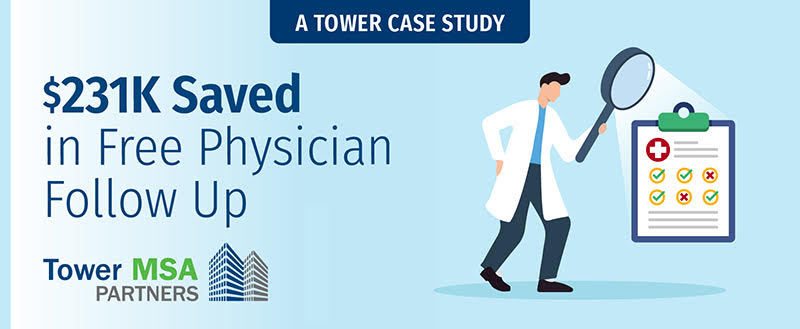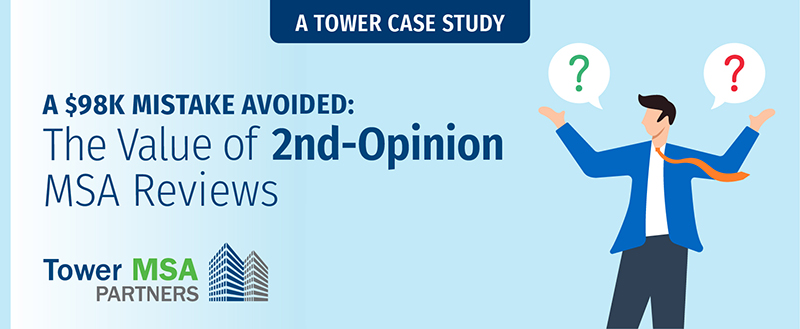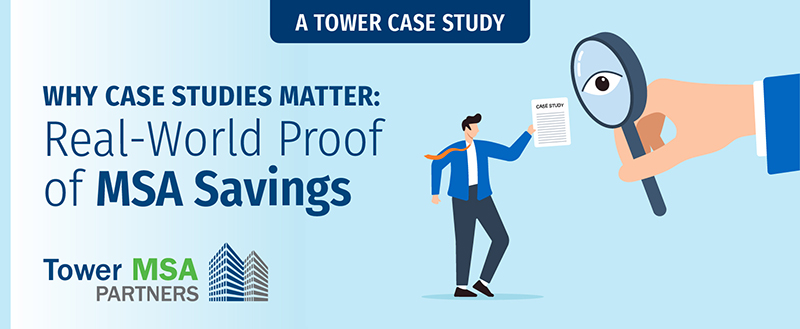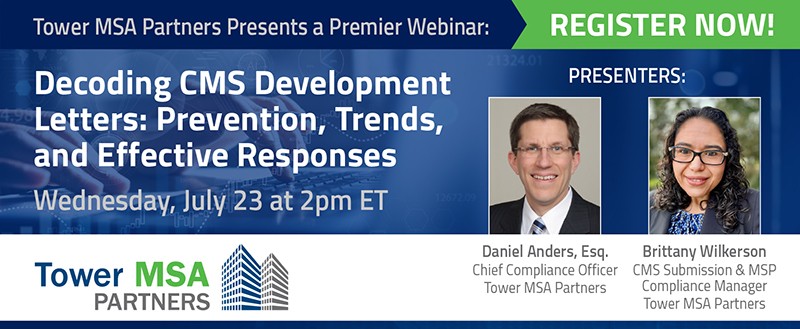In Tower MSA Partners’ previous post, Trimming the Fat, $175K in Savings Through MSA Optimization, we explained how MSA optimization removed $175,000 in unnecessary projected costs. In this case, a payer asked Tower to validate the treatment plan for a complex claim through physician follow-up. By engaging the treating provider, confirming current medical needs, and obtaining a physician attestation, Tower reduced the projected Medicare Set Aside (MSA) lifetime cost by $231,487 and secured CMS acceptance without development.
Identifying the Problem
The claimant’s original MSA had been created more than two years earlier. Since that time:
- Multiple prescriptions were listed without up-to-date clinical context
- Treatment frequency and diagnoses were not validated
- The projected costs reflected outdated assumptions
Without direct clinical confirmation, the allocation risked inflating projected future costs and faced potential CMS scrutiny. The payer needed a defensible allocation grounded in current medical reality.
The Physician Follow-Up Solution
Tower’s clinical team initiated physician follow-up, adhering to jurisdictional rules for secure outreach. The process included:
- Reviewing the full set of updated medical records
- Confirming active medications, dosages, and indications
- Discussing current therapy frequency with the treating physician
- Validating the absence or tapering of unnecessary prescriptions
The physician confirmed that the only active prescription was Oxycodone/APAP 5/325 mg and that certain therapies were no longer needed. Armed with this clinical confirmation and a signed attestation, Tower updated the allocation.
The result was a $231,487 reduction in projected MSA costs — fully documented, fully supported, and defensible.
Collaboration and Communication
Tower MSA Partners didn’t just update numbers in a spreadsheet. Every correction was explained clearly to the claims professional and documented. The physician’s signed attestation — verifying current care and confirming that outdated items were no longer clinically necessary — was included in the CMS submission.
Because the revised MSA included accurate current clinical information and a valid attestation, CMS approved the allocation quickly and without development requests.
Why Physician Follow-Up Makes the Difference
Treatment plans evolve, medications change, and assumptions in an early allocation can become outdated. Without direct validation from the treating physician:
- Medications may be mischaracterized
- Frequencies may be overstated
- Lifetime projections may overestimate future care
Physician follow-up ensures the MSA reflects actual current need, which:
- Controls costs
- Enhances compliance
- Strengthens defensibility in CMS review
This case shows that physician engagement isn’t a luxury — it’s a strategic lever for both accuracy and savings.
Lessons Learned
- Physician engagement validates clinical need and clarifies current care.
- Signed attestations give CMS confidence in the accuracy of the allocation.
- Outdated medications and therapies can be confidently removed when confirmed to be clinically unnecessary.
- Defensible projections protect payers from excess costs and speed CMS review.
Results That Reflect Expertise
With targeted physician follow-up and attestation:
- The payer realized $231,487 in reduced lifetime MSA costs
- The updated allocation aligned with clinical reality
- CMS approved the allocation without development requests
Tower MSA Partners delivered transparent documentation, accurate projections, and a cost-conscious, defensible settlement outcome.
FAQs
Physician follow-up is direct communication by Tower with the treating provider to confirm current medical treatment, active medications, and therapy needs. It ensures MSAs reflect accurate, individualized clinical information.
By validating care with the treating physician, unnecessary treatments and medications can be removed or corrected in the lifetime projection, reducing projected future costs.
Yes. When physician follow-up includes clear clinical documentation and, if required, a signed statement, CMS will accept updated MSAs and often approves them without development requests.
Physician follow-up can be used anytime there is open-ended medical care, outdated treatment recommendations or inconsistent or contradictory medication history.











